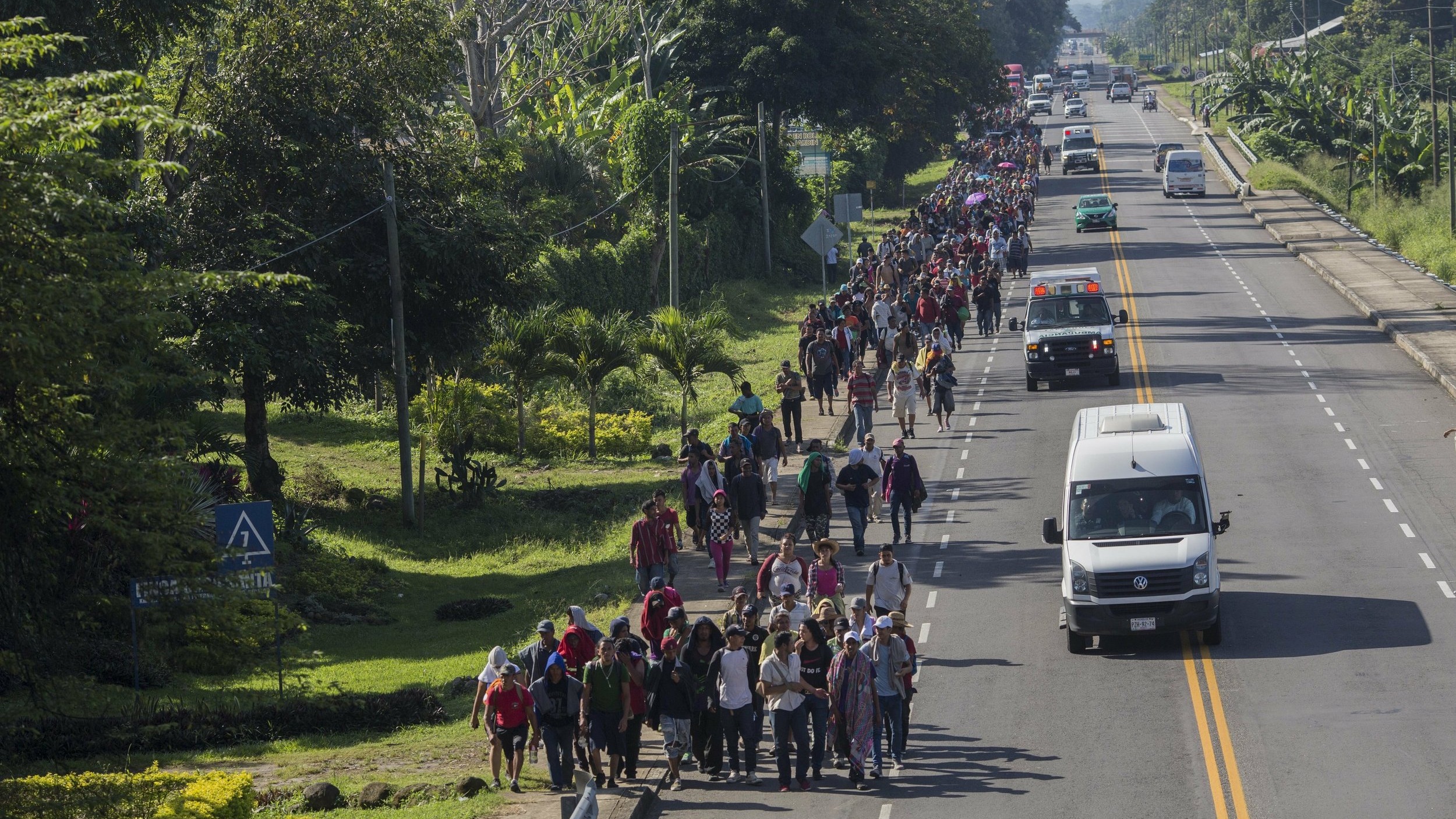You’re a citizen of a Central American nation who’s started getting death threats from a gang in your neighborhood, or who’s been persecuted by a corrupt government, or who despairs over whether you’ll be able to feed your children since a foreign mining company secured rights to your ancestral farmland and the sparse local work doesn’t pay a living wage.
You may or may not have any concept of the historical connection between the United States’ exploitation of your country’s soil, water, minerals, and politics. Maybe you know that their corporations’ manipulations, backed by U.S. policy and the U.S. military, are in large part what’s driven you and your neighbors to your current state of poverty and vulnerability to both gang and state violence. Or maybe you don’t.
Either way, you do know that the U.S. is supposed to be the land of opportunity. Isn’t it a nation of immigrants, immigrants who erected a Statue of Liberty to light the way for those who would follow? You know there are jobs, at least, and safety from the dangers that threaten you and your family at home.
What do you do next?
Well, here’s one story among thousands that began this way.
One family’s ordeal
Unable to enter the United States and unwilling to return to El Salvador, the Yanes family waits in Mexico
by Sophia Lee
Post Date: February 25, 2019 - Issue Date: March 16, 2019
https://world.wng.org/2019/02/one_family_s_ordeal
Kenny Yanes and his wife Ezequiel lived in a gang-infested, poverty-wrecked barrio in El Salvador. A full day’s labor in the fields earned them $7 each. “There’s no freedom,” Kenny told me. “The gangs watch every move you make. What kind of life is that? Forget about finding a job. Forget about living life. That alone should make anyone want to leave the country.”
But they stayed, because they’d heard horrific stories about the migrant’s journey to the United States. Throughout the years many Central Americans have headed north for a better life, and many have perished along the way. Drug cartels, bandits, and corrupt police extort, abuse, kidnap, rape, and murder migrants. Coyotes (smugglers) rob, abandon, or sell their clients to sex traffickers.
Last October a Facebook page, since deleted, and a WhatsApp group, “Caravana Santa Ana,” mobilized Salvadorans to head 2,700 miles to the Promised Land together in a caravan. Migrant caravans provide safety in numbers: With big numbers come media attention and international scrutiny, which pushes authorities to behave and evildoers to look for victims elsewhere.
When Kenny and Ezequiel heard about the upcoming caravan, they stuffed two changes of clothes into a backpack and scraped up all their cash—about $80 in all. Together with Kenny’s nephew Alexis and Ezequiel’s cousin Marcos (they only gave their middle names, stating fear of harm from authorities), they showed up on Oct. 31, 2018, at the capital of El Salvador and joined 2,000 others.
They began on foot: Most wore hats or draped T-shirts over their faces to keep the blazing rays away. They walked what seemed like endless miles, lying down when the sun set and continuing the journey when dawn broke.
A few days later, the caravan crossed the border to Guatemala, where the Yanes family hitched rides from passing vehicles. When they reached the Guatemala-Mexico border, the Guatemalan and Mexican police let them through to Chiapas. Throughout the trip, they relied on charity from local residents and priests. In some towns, people offered them tortillas, bread, snacks, and bottled water. In others, residents glared and slammed their doors. On those days, the Yaneses went hungry.
Their caravan did not take the shorter, northeastern route to Texas, which crosses precarious, crime-ridden Mexican states. It took the longer but safer northwestern route to reach Tijuana, which has more shelters and nonprofit volunteers than any other border city and is adjacent to California, a “sanctuary state.”
The Tijuana the Yanes family entered on Nov. 27 was a city already buckling under the burdens of housing thousands of migrants like the Yaneses. Ezequiel said she assumed when they reached Tijuana they’d breeze right through, just as they did at other border cities. Instead, “everything came to a halt,” Ezequiel said with a despondent smile: “I’m disillusioned.”
